Minerals
Essential minerals like calcium, magnesium, zinc, and iron are vital for bone strength, energy production, and overall health of an individual.
Upto 35% OFF

Nutrabay Magnesium Glycinate 2000mg
From
₹399
MRP: ₹549
Add
Upto 71% OFF
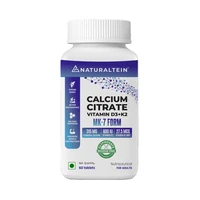
Naturaltein Calcium Citrate With Vitamin D3+k2 (mk7)
From
₹169
MRP: ₹600
Add
71% OFF

Naturaltein Zinc Monomethionine
₹339
MRP: ₹1,200
Add26% OFF

Gnc Calcium Plus 1000mg With Magnesium And Vitamin D3 Cap
₹329
MRP: ₹449
AddUpto 34% OFF

Vlado’s Himalayan Organics Calcium Magnesium Zinc D3, B12 & K2
From
₹533
MRP: ₹768
Add
39% OFF

Healthyhey Nutrition High Absorption Magnesium Glycinate, 550mg
₹799
MRP: ₹1,329
Add32% OFF
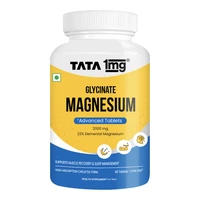
Tata 1mg Glycinate Magnesium
₹404
MRP: ₹595
Add29% OFF

Healthaid Magnesium Orotate 500mg
₹1,228
MRP: ₹1,750
Add15% OFF

Swisse Ultiboost Hs Magnesium Glycinate & Citrate
₹1,274
MRP: ₹1,499
Add62% OFF

Healthyhey Nutrition Zinc Methionine Plus Copper
₹666
MRP: ₹1,779
Add10% OFF

Ace Blend Max Magnesium 440mg
₹791
MRP: ₹879
Add21% OFF

Rasayanam True Form Iron Supplement
₹549
MRP: ₹699
Add33% OFF

Healthaid Magnesium Glycinate With Zinc
₹661
MRP: ₹999
Add25% OFF
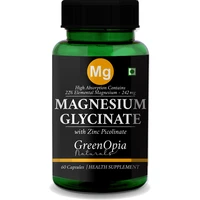
Greenopia Magnesium Glycinate With Zinc Picolinate
₹974
MRP: ₹1,299
Add14% OFF

Fast&up Fortify With Calcium, Vitamin D3, K, C (20 Effervescent Tablets)
₹214
MRP: ₹249
Add9% OFF

Rasayanam Magnesium Glycinate
₹999
MRP: ₹1,099
Add31% OFF

Vlado's Himalayan Organics Zinc Methionine + Copper
₹709
MRP: ₹1,038
Add33% OFF
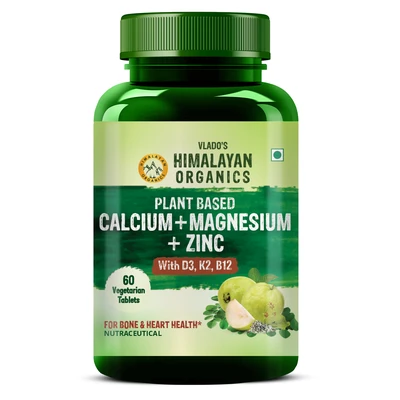
Vlado's Himalayan Organics Plant Based Calcium + Magnesium + Zinc With D3 ,k2 , B12
₹1,058
MRP: ₹1,599
Add15% OFF

Swisse Ultiboost Magnesium, Calcium+d3 - Supports Muscle Function & Energy
₹1,189
MRP: ₹1,399
Add31% OFF

International Protein Zinc Magnesium Aspartate
₹1,088
MRP: ₹1,599
Add30% OFF

Dr. Morepen Calcium+ Advanced Tablets
₹279
MRP: ₹399
Add39% OFF

Healthyhey Nutrition Magnesium Citrate - 1000 Mg
₹786
MRP: ₹1,299
Add10% OFF

Pure Nutrition Magnesium Glycinate
₹627
MRP: ₹699
AddUpto 25% OFF

Fast&up Magnesio With Magnesium And Zinc (tube Of 20 Tabs)
From
₹347
MRP: ₹410
Add
25% OFF
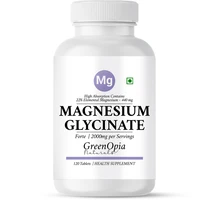
Greenopia Magnesium Glycinate 2000mg
₹974
MRP: ₹1,299
Add10% OFF
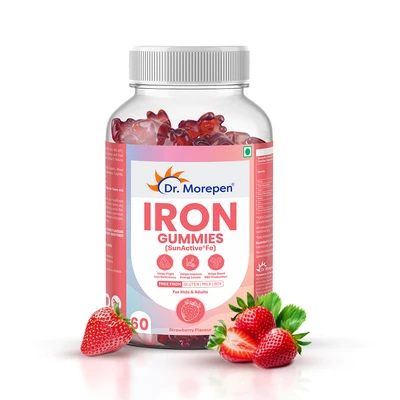
Dr. Morepen Iron Gummies With Sunactive® Fe
₹539
MRP: ₹599
Add44% OFF

Vlado's Himalayan Organics Magnesium Citrate (chelated) 1000mg
₹709
MRP: ₹1,278
Add25% OFF
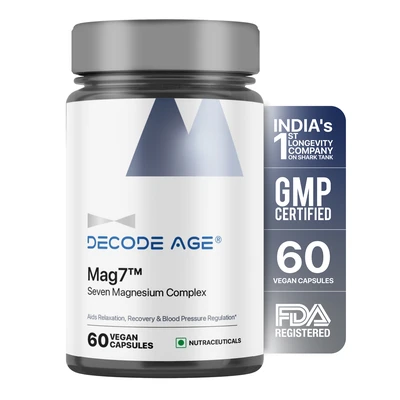
Decode Age Mag7™ Seven Magnesium Complex
₹899
MRP: ₹1,200
Add28% OFF

Vlado’s Himalayan Organics Zinc Citrate 13.2mg Elemental Zinc/ Serving
₹689
MRP: ₹959
Add15% OFF

Swisse Ultiboost Vegan Calcium + Vitamin D Supplement
₹1,104
MRP: ₹1,299
Add44% OFF

Healthyhey Nutrition Zinc Citrate
₹666
MRP: ₹1,199
Add10% OFF

Pure Nutrition Calcium Magnesium Zinc Tablets
₹538
MRP: ₹599
Add15% OFF

Swisse Ultiboost Calcium + Vitamin D Supplement
₹1,189
MRP: ₹1,399
Add14% OFF

Swisse Ultiboost Magnesium Supplement For Immunity, Muscle Energy & Heart Health
₹977
MRP: ₹1,149
Add14% OFF

Swisse Ultiboost Iron Supplement With Vitamin C, Vitamin B6 & Vitamin B12
₹807
MRP: ₹949
Add33% OFF

Healthaid Strong Calcium 600mg
₹708
MRP: ₹1,070
Add
Decode Age Mag7™ Powder
₹599
MRP: ₹600
Add30% OFF
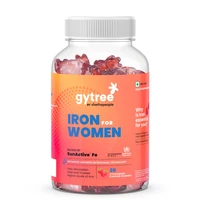
Gytree Iron For Women
₹699
MRP: ₹999
Add
What are Minerals?
Minerals are naturally occurring substances that we all need for optimal growth and functioning. Like vitamins, minerals help us grow, develop and stay healthy. Although they are micronutrients, they play a vital role in numerous body processes, such as energy metabolism and fluid-electrolyte balance.
Minerals: Benefits & Uses
Every mineral plays a significant role in the body. Let's understand it in brief.
- Calcium: This most abundant mineral in the body is required to maintain strong bones and teeth. Our heart, muscles, and nerves also need calcium to function properly. As per ICMR, an adult needs approximately 1000 mg of calcium daily.
- Magnesium: Magnesium is critically needed for more than 600 reactions in the body. We need it for energy metabolism, protein synthesis, brain functioning, and muscle contraction. Magnesium also helps maintain strong bone density and healthy blood pressure levels. Our daily magnesium requirement ranged between 370-440 mg daily.
- Zinc: This essential mineral aid in the development and function of immune cells. Zinc has been shown to reduce oxidative stress and assist in DNA and protein synthesis.
- Iron: The necessity of iron to maintain healthy haemoglobin levels and prevent anaemia is well-known. Iron helps preserve many vital body functions, including energy metabolism, cognitive health, gastrointestinal processes, the immune system, and body temperature regulation.
- Chromium: Chromium mineral supports energy metabolism and improves insulin sensitivity. Due to this reason, chromium picolinate supplements are popular among fitness enthusiasts and bodybuilders. They could also benefit people with impaired glucose tolerance and diabetes. However, it is better to consult your doctor before starting the supplement.
- Selenium: Selenium is a potent antioxidant. It helps fight free radicals and oxidative stress and minimizes the risk of chronic diseases like diabetes, heart disease, etc.
- Potassium: We need potassium to maintain the fluid-electrolyte balance of the body. It is the third most abundant mineral in the body and acts as an electrolyte. Additionally, potassium helps maintain healthy blood pressure levels and regulate muscle and heart contractions.
- Phosphorus: The primary function of phosphorus is to keep our bones and teeth strong. Our body also utilizes it to grow and repair tissues, produce genetic material, and facilitate nerve conduction.
- Sodium: Sodium is another electrolyte needed to regulate body fluids and transmit electric impulses.
- Manganese: Manganese is an essential mineral required for bone development and maintenance, regulating blood sugar, energy metabolism, and fighting oxidative stress.
- Copper: Copper has a variety of roles to play in the body. We need it to produce red blood cells, maintain strong bone and immune health, and regulate blood pressure.
- Iodine: The thyroid hormone is critical to control energy metabolism and growth. It helps regulate the body's metabolic rate. Iodine mineral is essentially required for synthesizing thyroid hormone.
- Chloride: Chloride helps maintain fluid balance in combination with sodium and potassium. It assists muscle and heart contraction and helps our nerve cells carry messages between the brain and the body.
- Sulphur: Sulphur mineral is needed to synthesize and repair DNA and a potent antioxidant - glutathione.
- Molybdenum: Our body utilizes this mineral to breakdown and drugs and toxic substances. Molybdenum also acts as a cofactor of multiple enzymes.
How to choose the right minerals for you?
One can opt for mineral supplements to fill in any nutritional gaps. A person can consider a multi mineral or single-mineral supplement based on dietary needs, for example, a calcium or iron supplement or a supplement for bone health containing nutrients like calcium, potassium, phosphorus, zinc, and magnesium.
While opting for any supplement, it is essential to check the strength and recommended dosage. The supplement should be certified and lab-tested, and the dose should not be too large to prevent toxicity.
How to use Minerals for best results?
Before adding them to the diet, it is advisable to consult a doctor and choose a supplement appropriate for your age and requirements. Some mineral supplements work best with meals, and some on an empty stomach. Hence, it is better to consult an expert to understand the timing for better absorption and prevent nutrient-drug interaction.
Where to buy Minerals?
Nutrabay.com is India's most trusted leading online website for the best mineral supplement price to invest smartly in health supplements. Products sold on Nutrabay are 100% authentic as they are sourced either directly from the brands or official importers. We guarantee a hassle-free buying experience online with secure payment options. Check out bodybuilding supplements to feel great every day and build a perfectly healthy body.
Are Minerals safe to use?
Mineral supplements are safe to use when consumed in moderation as per requirement within the recommended dosage. Overuse of supplements can result in toxicity and affect the body adversely.
Frequently Asked Questions (FAQs)
1.Who can take Mineral supplements?
Anyone can opt for mineral supplements, including children, the elderly, and pregnant and lactating women. If planning to purchase for a specific age group or health condition, opting for tailored ones formulated explicitly as per the need is good.
2.Are natural food sources like fruits and vegetables insufficient to get a daily dose?
Even after consuming a healthy diet, certain risk factors may increase the likelihood of nutritional deficiency.
For example, older people are at greater risk of deficiency due to reduced metabolism, difficulty chewing and swallowing food, and medical conditions like celiac disease, ulcerative colitis, diarrhoea, IBS, or vomiting. All these conditions reduce the bioavailability and absorption of nutrients.
Similarly, certain medications like diuretics also interfere with or reduce calcium, potassium, and magnesium absorption. Under such conditions, mineral supplements may prove beneficial.
Nutritional needs for iron and calcium increases during pregnancy and lactation, so gynaecologists prescribe additional supplements to women during these phases.
As scientific research suggests, mineral supplements may play an ergogenic role in enhancing overall athletic performance among athletes.
3.Can a Mineral supplement be consumed daily?
The dosage of any supplement might vary from brand to brand, depending upon the composition. Always refer to the recommended dosage mentioned on the nutrition label.
4.Are Mineral supplements vegan-friendly?
Mineral supplements might contain animal-derived nutrients or have gelatin-based capsules. Always check for information mentioned on the pack for a vegan supplement.
5.Can Mineral supplements be consumed by lactose and gluten intolerants?
They are usually lactose and gluten-free, but it is always better to carefully read the allergen info before opting for any supplement.
6.At what time should I consume Mineral supplements?
Mineral supplements might vary in timing, for example, empty stomach or with a meal. But it is better to follow the instructions mentioned. People already on medications must seek advice from the doctor to understand the best time.
7.What should I do in case I miss any dose?
If any dosage is missed, then consume the next dose per recommendation. It is not advisable to double the quantity at a time.
8.What happens in case of overdose?
One should avoid an overdose of any nutrient. It is unhealthy and might result in grave consequences like nausea, vomiting, diarrhoea, bone pain, abdominal discomfort, anorexia, muscle twitching, and many more.
- Nutrabay Magnesium Glycinate 2000mg₹399
- Naturaltein Calcium Citrate with Vitamin D3+K2 (MK7)₹169
- Naturaltein Zinc Monomethionine₹339
- GNC Calcium Plus 1000mg with Magnesium and Vitamin D3 Cap₹329
- Vlado’s Himalayan Organics Calcium Magnesium Zinc D3, B12 & K2₹533
- HealthyHey Nutrition High Absorption Magnesium Glycinate, 550mg₹799
- Tata 1mg Glycinate Magnesium ₹404
- HealthAid Magnesium Orotate 500mg₹1,228
- Swisse Ultiboost Hs Magnesium Glycinate & Citrate₹1,274
- HealthyHey Nutrition Zinc Methionine Plus Copper₹666




